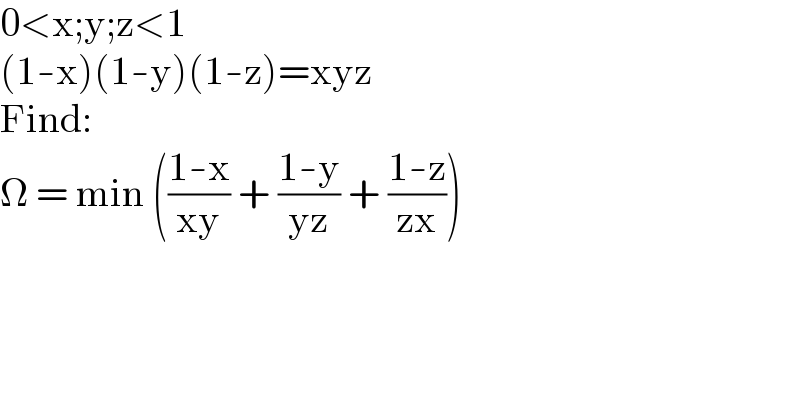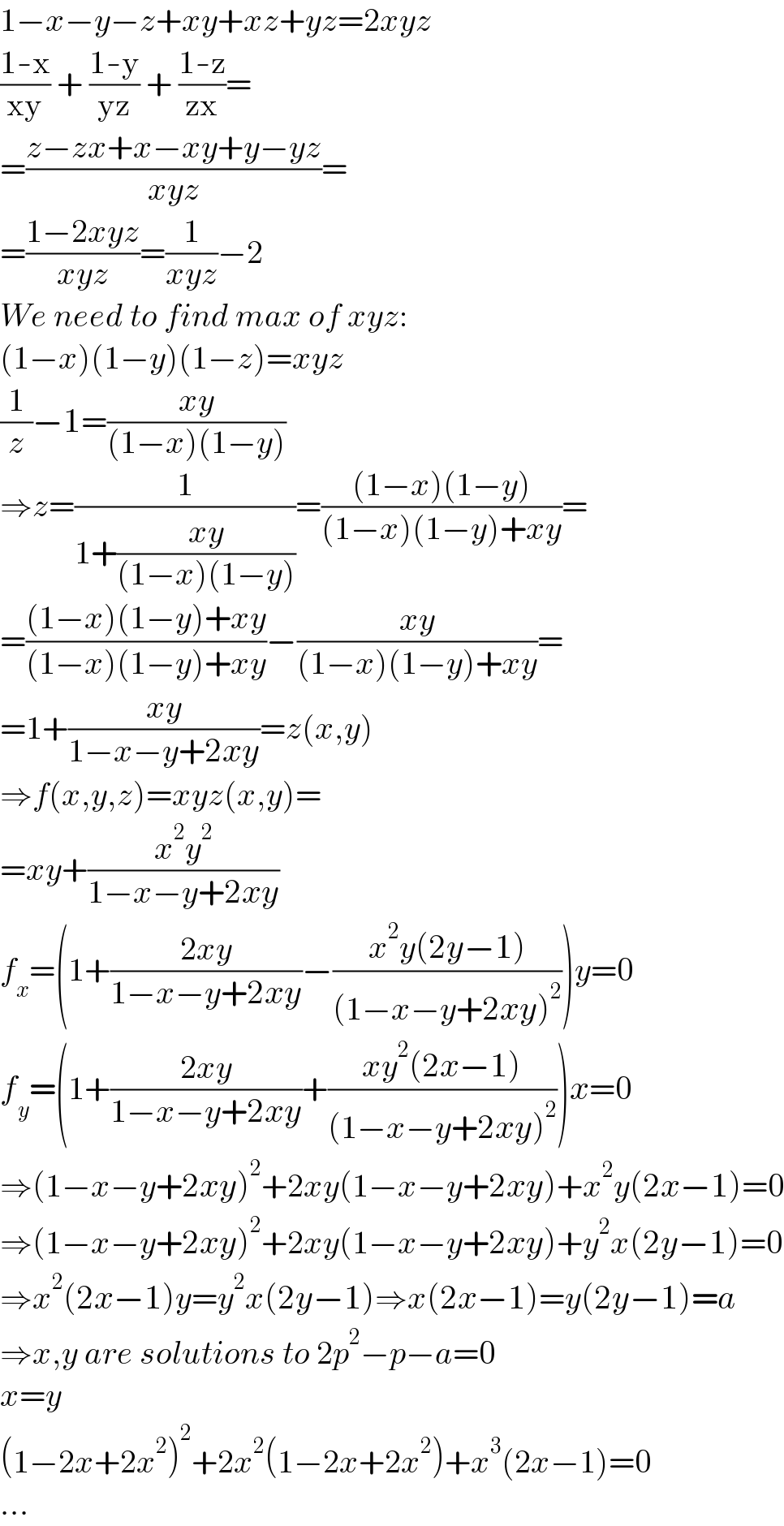
Question and Answers Forum
Question Number 161900 by HongKing last updated on 23/Dec/21

Answered by aleks041103 last updated on 24/Dec/21

Commented byHongKing last updated on 28/Dec/21

| ||
Question and Answers Forum | ||
Question Number 161900 by HongKing last updated on 23/Dec/21 | ||
 | ||
Answered by aleks041103 last updated on 24/Dec/21 | ||
 | ||
| ||
Commented byHongKing last updated on 28/Dec/21 | ||
 | ||